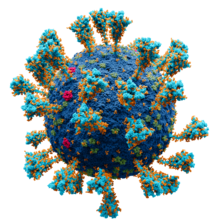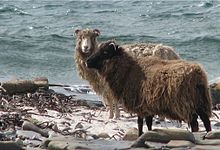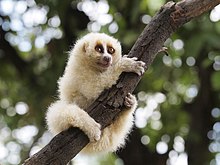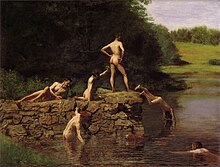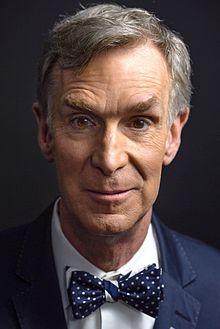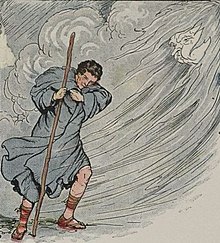Portal:Science
Science portal

Science is a systematic discipline that builds and organises knowledge in the form of testable hypotheses and predictions about the universe. Modern science is typically divided into two or three major branches: the natural sciences (e.g., physics, chemistry, and biology), which study the physical world; and the behavioural sciences (e.g., economics, psychology, and sociology), which study individuals and societies. The formal sciences (e.g., logic, mathematics, and theoretical computer science), which study formal systems governed by axioms and rules, are sometimes described as being sciences as well; however, they are often regarded as a separate field because they rely on deductive reasoning instead of the scientific method or empirical evidence as their main methodology. Applied sciences are disciplines that use scientific knowledge for practical purposes, such as engineering and medicine. (Full article...)
Featured article -
Featured pictures
Vital articles
Agriculture encompasses crop and livestock production, aquaculture, and forestry for food and non-food products. Agriculture was a key factor in the rise of sedentary human civilization, whereby farming of domesticated species created food surpluses that enabled people to live in the cities. While humans started gathering grains at least 105,000 years ago, nascent farmers only began planting them around 11,500 years ago. Sheep, goats, pigs, and cattle were domesticated around 10,000 years ago. Plants were independently cultivated in at least 11 regions of the world. In the 20th century, industrial agriculture based on large-scale monocultures came to dominate agricultural output. (Full article...)
Did you know...
- ... that after Ursula K. Le Guin published her collection The Wind's Twelve Quarters, a reviewer called her the "ideal science fiction writer for readers who ordinarily dislike science fiction"?
- ... that public health measures and advances in medical science in modern human history helped raise global life expectancy from about 31 years in 1900 to over 66 years in 2000?
- ... that the documentary film I Am Human has been the conversation starter for neuroscience panel discussions at universities such as Harvard?
- ... that at the age of 14, Jenny Suo conducted a science experiment that ultimately led to GlaxoSmithKline pleading guilty to breaching consumer protection laws?
- ... that Mary Robertson was the first woman to receive a Doctor of Science degree in medicine from the University of Cape Town?
- ... that Henry E. Sigerist felt "depressed" after reading A History of Science, Technology, and Philosophy in the 16th and 17th Centuries?
Get involved
| This portal needs to be updated. Please help update this portal to reflect recent events or newly available information. Relevant discussion may be found on the talk page. |

|

|
Science News
- 12 December 2024 –
- Edith Heard, biologist specialist of epigenetics and director-general of the European Molecular Biology Laboratory, is awarded the CNRS Gold Medal, France's highest research award. (CNRS - Le Journal)
- 21 November 2024 –
- The European Southern Observatory announces that its astronomers in Chile capture the first close-up image of a star outside the Milky Way. (The New York Times)
- 20 November 2024 – Discoveries of exoplanets
- In a study published by the Nature journal, astronomers announce the discovery of IRAS 04125+2902 b, a newborn exoplanet. The discovery was made by Madyson Barber, a graduate student at the University of North Carolina at Chapel Hill. (Nature) (ABC News)
- 5 November 2024 –
- Researchers at Kyoto University in Japan launch LignoSat, the world's first wooden satellite constructed without screws or glue, into space. It will orbit Earth for six months. (DW)
- 10 October 2024 –
- In its annual Living Planet report, the World Wildlife Fund estimates that wild populations of animal species have decreased over 70% since 1970, with some high-biodiversity areas seeing up to 95% declines. (DW)
- 10 October 2024 – Tomb of Christopher Columbus
- Researchers from the University of Granada confirm that bones lying in the Seville Cathedral in Seville, Andalusia, Spain, belonged to Christopher Columbus. (ABC Spain)





